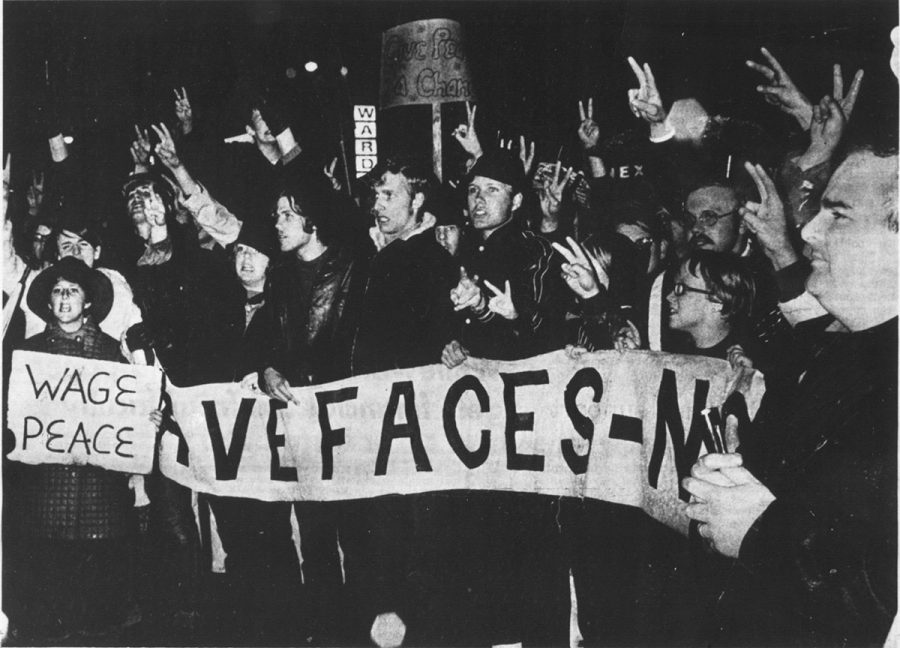One hundred reasons to celebrate: week 10
Protesters from 1970 marched in the Moratorium March, urging for peace and the end of the Vietnam War.
November 7, 2016
Each week The Spectator will showcase organizations, departments, majors or other aspects of UW-Eau Claire as a part of the centennial celebrations event known as “100 Reasons to Celebrate.”
#34 – American Indian Studies
Originally established in 1976, The American Indian Studies program is celebrating its 40th year on campus.
As a new addition to its website, AIS has added a Veda Stone gallery to show photos of and give more information about the founder of the program. According to the website, Stone initially began the program in an attempt to recruit more American Indian students to study at Eau Claire. The same year, an AIS minor was developed. It wasn’t until fall of 1996 that students could finally begin to pursue an AIS major.
According to UW-Eau Claire’s webpage, the Ojibwe language is in danger of becoming extinct. In order to promote a “language and culture revitalization movement,” Eau Claire offers Ojibwe classes online for free. The page also has archived classes for those who can’t tune in during the live sessions. Ojibwe is taught on campus for credit as well, and students can even earn a certificate in the language.
November is Native American Heritage Month, and it was kicked off with a powwow at Zorn Arena Saturday, Nov. 5. From 7:30-9:30 p.m. Wednesday, Native Pride Dancers will perform in Schofield Auditorium.
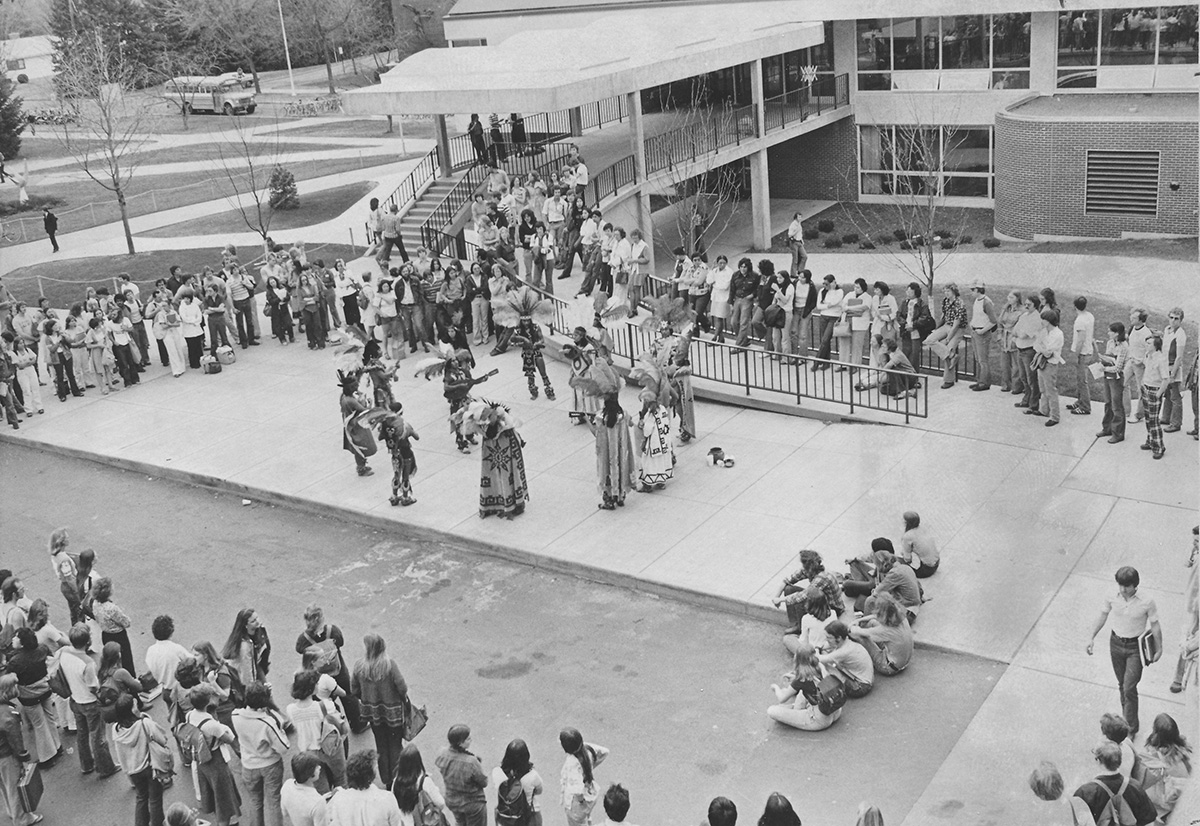
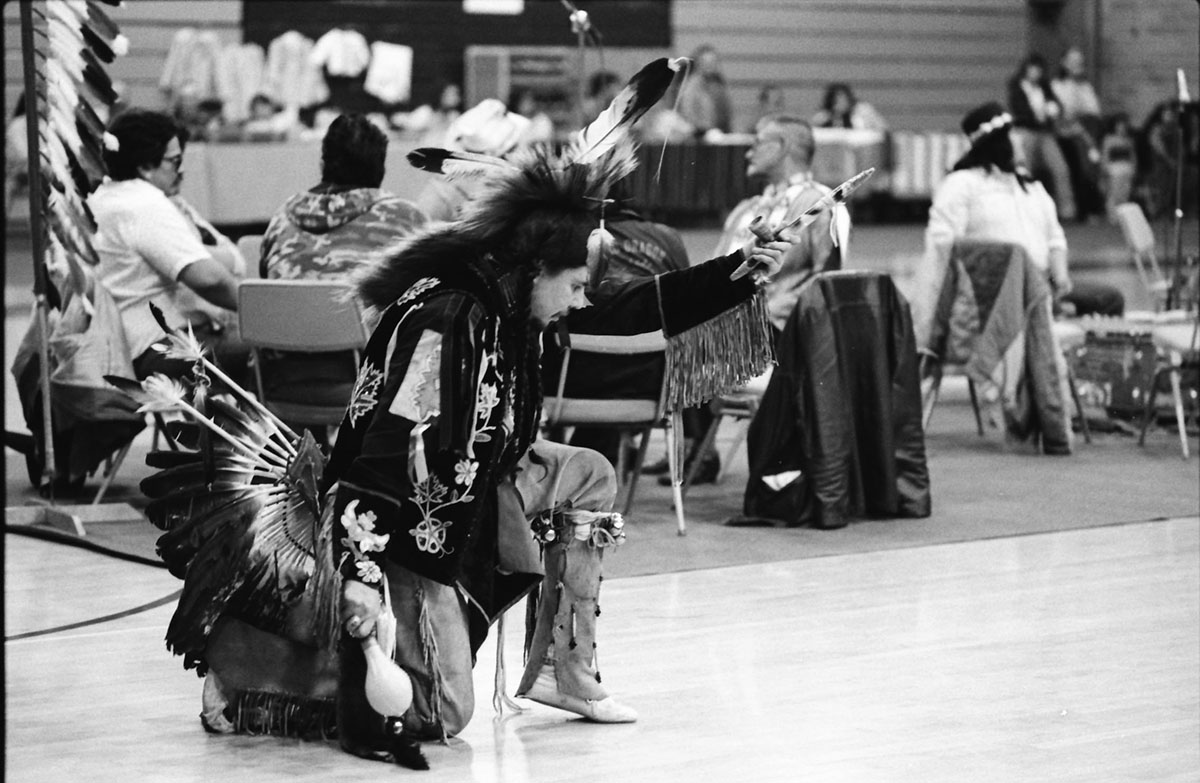
#35 – Army ROTC
Students who participate in the Army ROTC program on campus are set up to gain leadership skills, have access to unique training opportunities and even earn money for school.
According to the ROTC webpage, students involved in the program receive “substantial scholarships that help cover tuition, housing and other expenses, including airfare and tuition for international study.”
Along with this, these students are also paid a monthly allowance between $300-$500 to use for personal expenses.
Special training courses and programs are available to ROTC students, from the Ranger Challenge which is a competition involving M-16 rifle assembly/disassembly, a grenade assault course and more to Army Airborne School which trains individuals to become paratroopers.
All of the eight available ROTC courses focus on leadership skills and some have an emphasis on teamwork.
Students in the program typically take one Military Science Leadership per semester as well as weekly Leadership Labs, which allow students to use their classroom lessons in practical applications.
“Whatever the day’s lesson, it is sure to challenge and enrich the individual cadet and better prepare him or her for their future,” states the website.
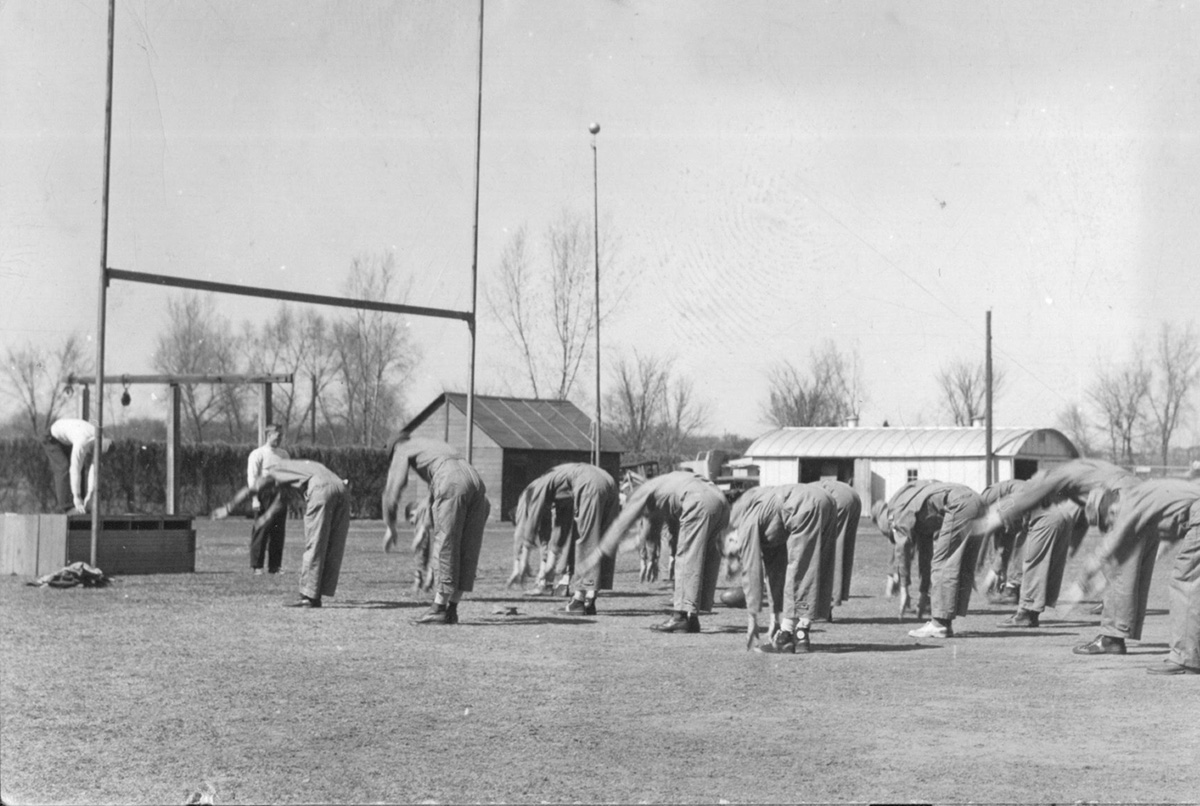
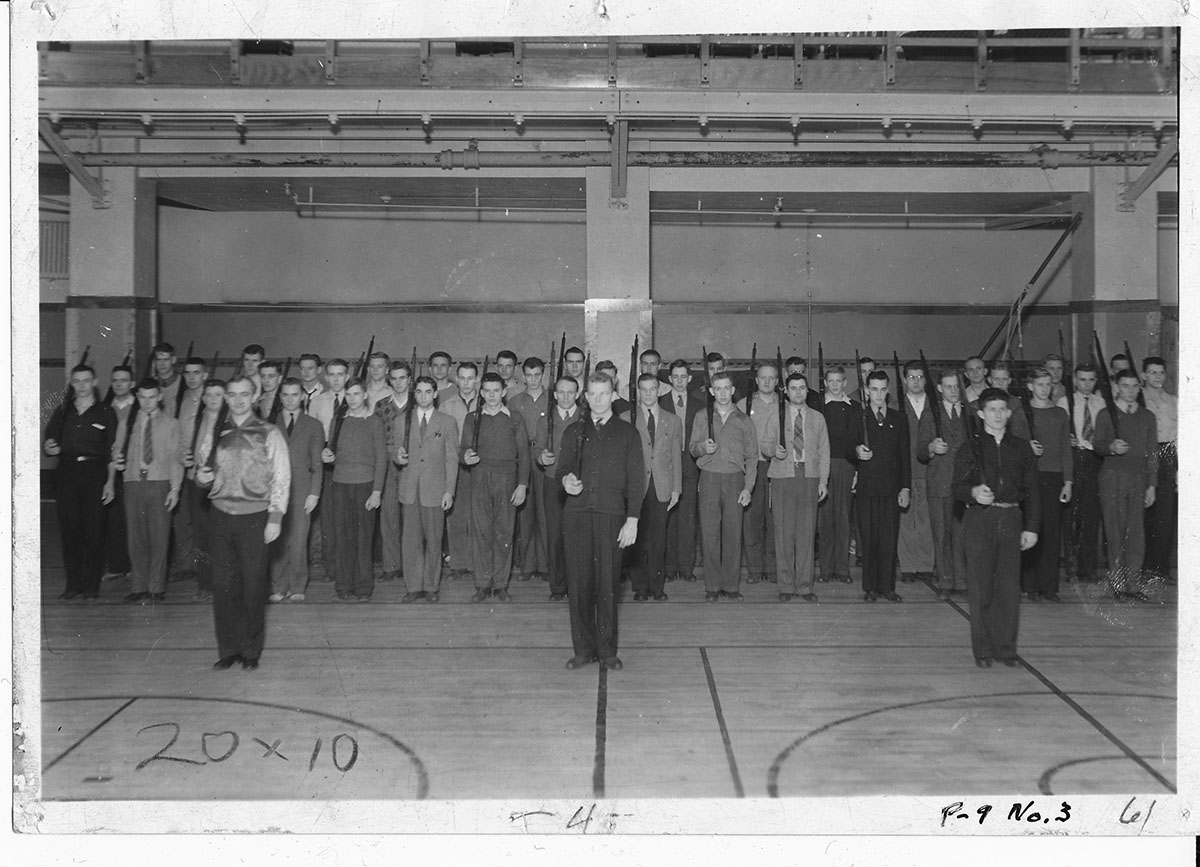
#36 – Political Science
With Election Day underway, the Political Science department at Eau Claire is receiving its recognition. The department created a video reliving the 1916 presidential election as if it were being held today.
The Political Science department gives students several majors, minors and certificates to choose from, including those under the Criminal Justice Program. Criminal Justice students have access to internships, research opportunities, the Lee Dahlgren Scholarship and the Criminal Justice Association, a student-run organizations, states the website.
Some of the internships held by Criminal Justice students include:
—United States Probation Office, Western District, Eau Claire
— Victim/Witness Assistance Program, Chippewa Falls
—Restorative Justice Center, Eau Claire
The Political Science department encourages its students to take on immersion experiences, and there are many different ways individuals can do this. From stateside trips to global, students have many opportunities, ranging from the Civil Rights Pilgrimage in Louisiana to Globalization in China.
Pre-law students can declare any major they wish, but designating they are a part of the pre-law program ensures they will be assigned a specific advisor to help them prepare for the path that follows undergraduate studies. According to the Pre-Law webpage, the program readies students for the law school admissions test and law school while satisfying the general education credits at Eau Claire.
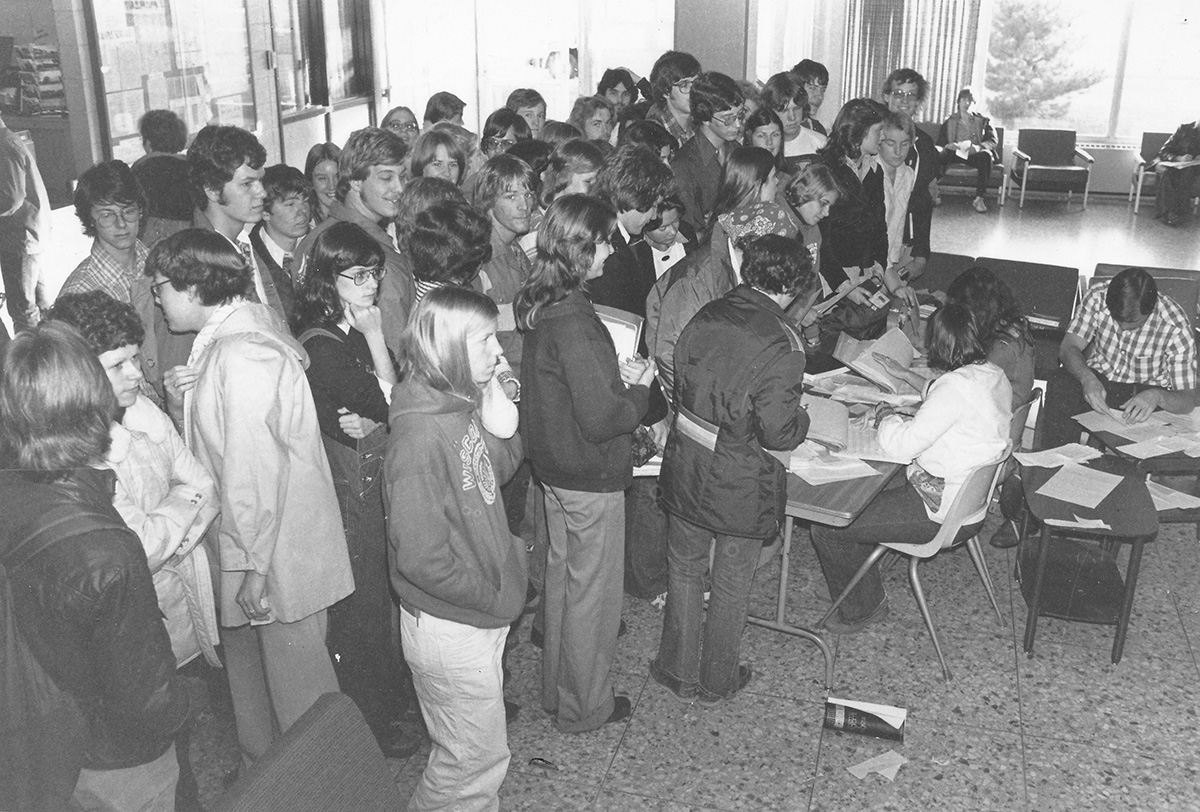
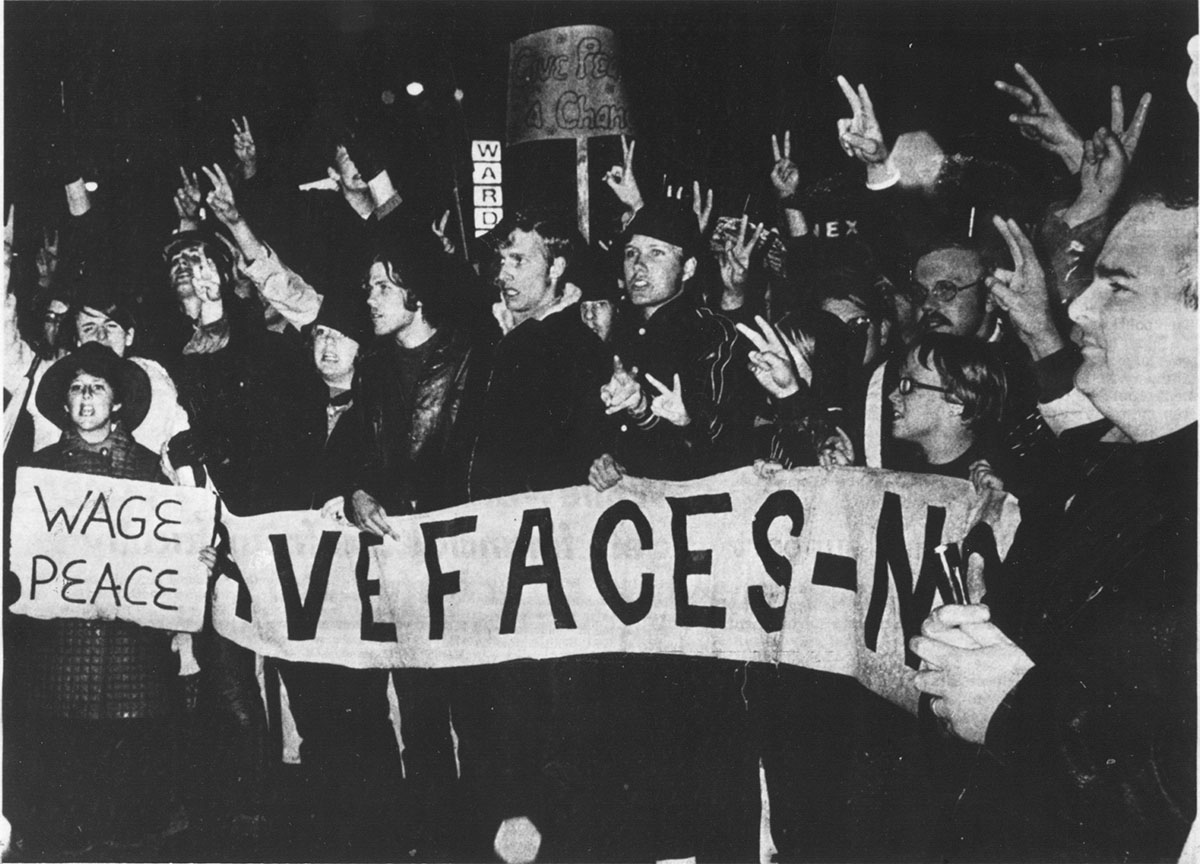
#37 – Veterans Center
http://www.uwec.edu/DOS/programs/veteran/index.htm
“The UW-Eau Claire Veterans Center located in Schofield Hall 20, was established to provide a meeting place on campus for veteran students, faculty and staff to honor them for their service to the country and to be a place of welcome for veterans on campus,” states the Veterans Center website.
In the center, veterans can learn about resources available to them, including financial aid, support groups and a telehealth network.
Financial aid can be found at both the state and federal levels with assistance such as Survivors’ and Dependents’ Educational Assistance and the Wisconsin State GI Bill. Both of these allow veterans to apply for special funding to cover the costs of school.
Dr. Quinn-Lee from Eau Claire conducted a research study in 2013 on veterans transitioning into full-time schooling. The purpose of this study was to find out what resources on campus would be beneficial to veterans. For more information, visit the Veterans Center website.
This Wednesday from 10 a.m.-2 p.m. the Veterans Center will host a Veterans Open House. Students, faculty and staff are encouraged to show support for veterans on Veterans Day this Friday, Nov. 11.
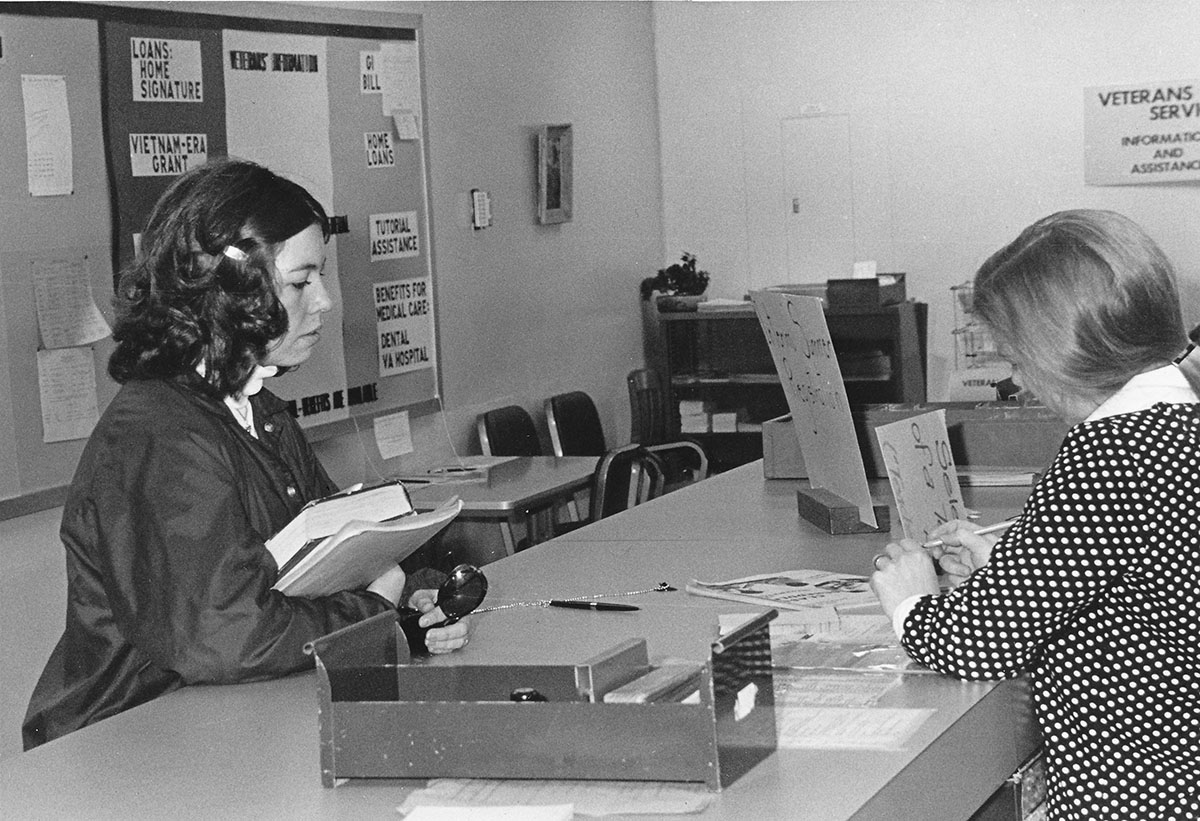
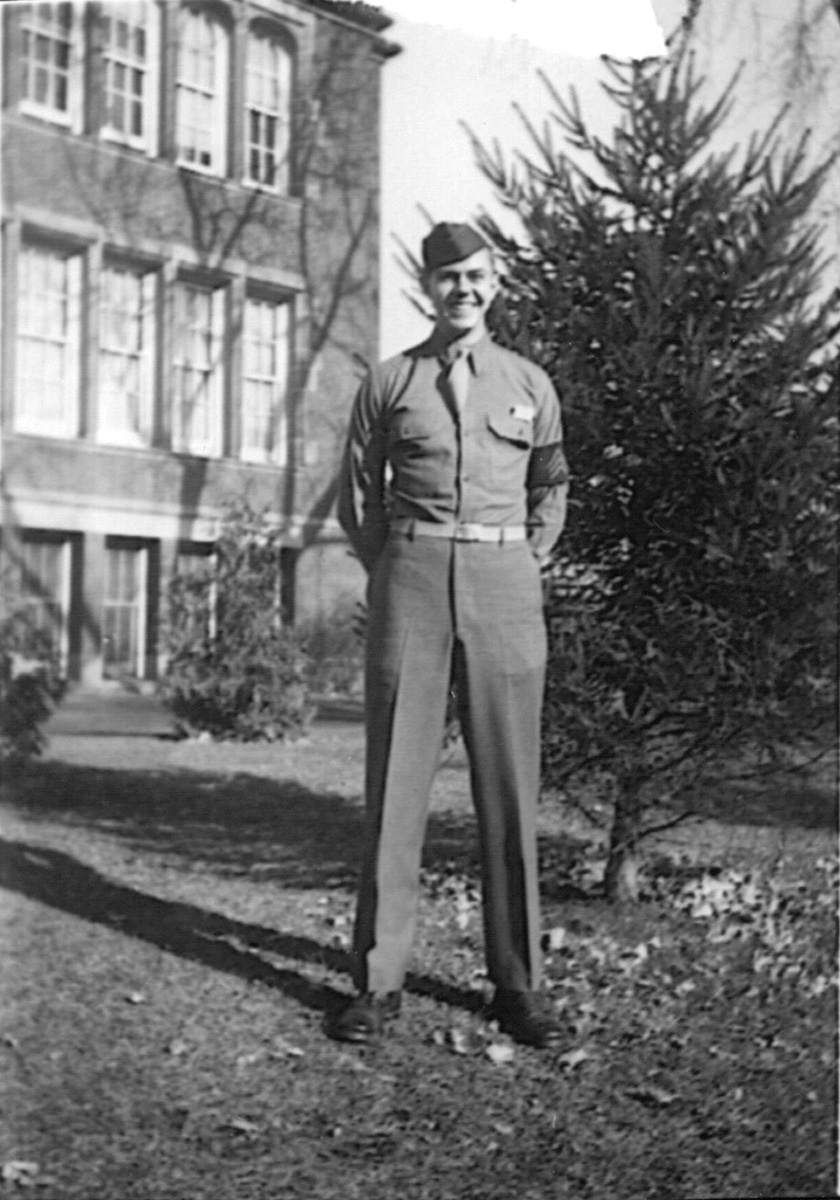
All photos courtesy of Special Collections and Archives, McIntyre Library, UW-Eau Claire.

